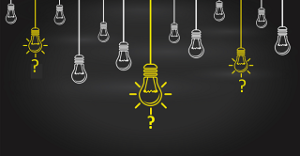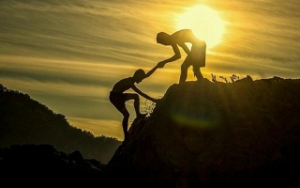
Arquivo para a ‘’ Categoria
The ascent to the Divine, how to live in crisis
It is in these moments of crisis that the human nature of God and the  divine nature of man are discovered, hands that save, that help, that show solidarity and that point out unthinkable paths, but where is God, what does this pandemic say with so many people dying .
divine nature of man are discovered, hands that save, that help, that show solidarity and that point out unthinkable paths, but where is God, what does this pandemic say with so many people dying .
Edgar Morin and Patrick Viveret wrote “How to live in a time of crisis”, the Brazilian translation is from 2013 and the original French version of 2010, so they are not talking about this crisis, knowing Morin and reading the book we realize that it is that night of thought that we speak (see post).
Consistent with our thinking, he goes against ambiguities, and makes a comparison between Pascal and Descartes right from the start: “Pascal brings a sense of ambiguity to him, the human being brings the best and the worst in himself. Descartes not, we must be Pascalians” (pg. 10) and if we allow the religious sense also Easter beings, to pass from death to life, and to live in crisis.
There is a deep thought in Morin, which he has expressed in other ways, which in this book is more surprising: “I would like to propose, regarding the historical period that we have entered, a reading close to that of the Apocalypse, in the original sense of the expression (sic), not of catastrophe, but of revelation, of a critical time of humanity with itself, allowing it to work the essentials ”(pg. 34), to accuse him of being religious would be ignorance and hopeless, bad reading.
The model of the crisis we live in is called DCD, “deregulation, unrestrained competition, displacement*”, in a note explaining the latter, it is manufacturing production displaced from one country to another, concentrated in China, for example, the case of necessary equipment and masks to fight coronavirus.
This model with economic foundations, is called by Karl Polanyi “market society” and which is currently called by Joseph Stiglitz “merchant fundamentalism” (p. 36), the authors give the diagnosis of the crisis: “formed by this double excess/malaise ”(p. 40).
They also give two essential and surprising diagnoses, saying that bin Laden, who was a Muslim, cited the Satan of the Apocalypse to refer to Rome, and says “what is the great strength of the prophets? It is precisely to say that the question of inhumane is inward” (p 58), “The idea that others are evil prevents us from treating our own inner barbarism” (idem).
The entire chapter 3 of the evangelist John is marked by a revelation, which is made when walking with men, and shows how the divine reality of the Risen Jesus is contextual and adapted to the world, however “the one whom God sent speaks the language of God “(Jo 3, 34), and it is clear that a good part of the religious discourse does not express this, but only conflicts in the human nature.
MORIN, Edgar; Viveret, Patrick. 2013. Como viver em tempo de crise (How to live in times of crisis), Rio de Janeiro: Bertrand Brasil, Brazil.
What is the divine medium
In times of crisis, prophets, oracles, Plato’s “sages” and all kinds of false wisdom come to the fore, as it is important and many seek a “divine” sign, the question is what is the “divine” medium for those who do not believe and for those who seek in faith a reason to hope.
come to the fore, as it is important and many seek a “divine” sign, the question is what is the “divine” medium for those who do not believe and for those who seek in faith a reason to hope.
For those who believe, the passage of John 3: 13-1 fits well: “If you do not believe, when I speak to you of the things of the earth, how will you believe if I speak to you of the things of heaven? And no one went up to heaven, except the one who came down from heaven, the Son of Man. Just as Moses raised the serpent in the desert, so it is necessary for the Son of Man to be raised, so that all who believe in him may have eternal life ”.
The “things of the earth” are not so far away, says the reading, no one went up to heaven, except the one who descended, the Jesus son of God and those who do not believe the earthly Jesus, a historical man, who was later raised on a cross, to finally reappear resurrected.
Let us return to earth, explaining precisely the Divine Environment (Chardin, s / d), who wrote: “in their effort towards mystical life, men often yielded to the illusion of brutally opposing the spirit and the flesh, the body and the soul, as if it were good and evil. Despite certain current expressions, this Manichaean tendency was never approved by the church … “(p. 117).
Thus, understanding the complexification of human life, concentration in large urban centers, agitation, excessive noise and mainly the purely economic view of life led to the “natural” thinking of idealism, the purely economic view and the omnipotence of the state.
So look at things from above, it does not mean “to leave the world”, even though there are purely contemplative orders and they are serious, when speaking of the Cross, Chardin shows that “every man persuaded that in the face of immense human agitation [writes this in the decade of 30 we have already said it] opens the way towards an exit, and that this path is to go up ”(p. 113), the emphasis is the author’s.
It points to this path of climbing, the choice of fundamental principles, in this case it is life, and they are among the brave who will triumph, says the author, and the scoffers who fail, because they did not climb and they do not rise.
Thus the author will affirm the reality of the historical Christ, which shows us how a life “in the world” can be a mystical and concrete ascent, “the passionate and unfathomable reality of the historical Christ” from which we draw many examples, and so is human life of a Divine Being.
Thus, in times of pandemic, not only the gesture of preventing oneself by using hygiene conditions, but also social gestures to help those who have no job and to the elderly and family members infected by covid-19, as well as help in the family are examples. of concrete divine life.And halfway through this night of crisis they leave their lesson of Love deeper, to give their Life for men.
.
The eclipse of God and the pandemic
Martin Buber, who was a Jew, gives his name to his book “The eclipse of God” (1952), because for someone who believes, and if he believes, God is not dead, but undeniably some “solid” veil eclipsed him in modernity, which it seems to be “dissolving”, as stated by Buber.
(1952), because for someone who believes, and if he believes, God is not dead, but undeniably some “solid” veil eclipsed him in modernity, which it seems to be “dissolving”, as stated by Buber.
I agree and it is always my analysis that the misunderstanding of the current thinking situation, we have already talked about the night of thought this week, Buber also affirms that it was the emergence of Kant’s Idealist thought that states that “God is not an external substance, but only a moral relationship in us ”, and Hegel who sees God as an abstraction.
However, the Hegelian synthesis is so powerful, it is the summit of idealism for different readings that can be made of it, its abstraction will confuse the divine Trinitarian, with an “absolute abstraction”, using the categories in-itself, of-itself and for -si, where the “for” is not a beyond, but a return to yourself. I do not exclude two aspects outside this context, but Marx’s “young” Hegelianism found Feuerbach, also the need for denial of the absolute, and starting from Feuerbach’s atheistic theology (in a way also Kantian), the religious idealism of Steiner, Bruno Bauer and others, who calls them “are” Bruno, Steiner, etc.
Nietzsche’s ‘God is dead’, is due precisely to his fideistic and fundamentalist formation, coming from a Lutheran family he will try to deny him (to God) throughout his life, but it is important to read him because he reveals what many people call him. a fundamentalist and little “substantial” faith, this is disconnected from reality. We have reached the bottom of the can in modern existentialism, and the pandemic crisis takes us back to it, the search for a reason for existence, which seeks to know if the insistence on “religious necessity” does not point to something inherent in human nature.
This is the problem that “torments” Buber, who also wrote Eu Tu where he practically affirms the existence of a horizontal God present in the human relationship, not being a Christian he is curious because he discovers the one who is “between two or more who are in my name ”(Mt 18,20), as a relationship with God, for Christians it is Jesus.
The central problem, which is that of the Trinity, God the Father, Jesus and the Holy Spirit, will not be addressed by Buber, but when commenting on Sartre’s existentialism, as part of the existential crisis of modernity, he affirms: “Does the existence, like the Sartre understands, it doesn’t really mean being there ‘for himself’, encapsulated in his subjectivity, or does it mean being there before a certain X – not just any X, to which a certain greatness should be attributed, but the X par excellence, the indeterminable and peerable? ”asks Buber.
The existential problem is that without the “substantial” God and he exists if we believe that Jesus is God is not separable from the triune God, and faith is inseparable from this “divine medium”.
The cultural crisis and the pandemic
The second great blindness of the Western crisis is culture, the book Anything Goes by Theodore Dalrymple, pseudonym of english´s psychiatrist Anthony Daniel who treated dangerous prisoners, is an anthology of short stories written from 2006 to 2009, and called his studies declinology (see the video below) but in the book cited there are beautiful passages on how to read a culture. in many countries.
by Theodore Dalrymple, pseudonym of english´s psychiatrist Anthony Daniel who treated dangerous prisoners, is an anthology of short stories written from 2006 to 2009, and called his studies declinology (see the video below) but in the book cited there are beautiful passages on how to read a culture. in many countries.
Since the dawn of human culture, the discovery of the Chauvet Cave (dated 32,000 BC) proves this, man builds and records his culture, and here a parallel with #StayAtHome this is done in a cave, probably a meeting place and protection of families.
It may seem too much the term used by Peter Sloterdijk, but human domestication is nothing other than the structuring of “domestic” life, and also the Greek origin of the word oikos-nomicus (we have already made a post) means oikos – home.
We add here Xenophon’s Socratic dialogue, which refers to the term how to be a good gentleman, Kalokagathos (good in beautiful, in Greek), which is thus a reference to culture.
Byung Chul Han, who wrote Salvação do Belo, where he criticizes the culture of the plain and in particular that of Jeff Koon and his sculptures of “baloons” (figure) that say a lot or nothing, the desire for total immunity, without seeking the co-immunity, concept of its master Sloterdijk, that can be applied to the current pandemic.
A hard article, even for me as an appreciator of Chul Han, about the current pandemic crisis, published in El País, states that: “it seems that Asia controls the epidemic better than Europe”, quotes the data of March 20 when the epidemic had not yet reached its peak in Europe and is based on the disciplined and ancestral structure of the east.
Earlier than us, they bet on Big Data, says the author, and “they suspect that big data may have enormous potential to defend themselves against the pandemic” says in the article by El País, but warns that this could lead to a digital dictatorship, as in China and this is not a change.
About the current culture, the author affirms “today not only the polished is turned to the beautiful, but also the ugly” in the work A Salvação do Belo (page 19), we hope that the scourge of the virus will move our hearts and make us go from discovery from interdependence, as Morin says, to solidarity.
https://veja.abril.com.br/videos/clube-do-livro/uma-aula-de-decliniologia-com-theodore-dalrymple/
#LockDown now
We have entered a decisive week of the pandemic, especially in Brazil, but also in many parts of the world, contagion will reach poorer areas and countries, where sanitary conditions and the concentration of people can lead to the greatest human tragedy, but it is Easter week. and I have hope.
also in many parts of the world, contagion will reach poorer areas and countries, where sanitary conditions and the concentration of people can lead to the greatest human tragedy, but it is Easter week. and I have hope.
A huge #LockDown could have a fulminant effect against contagion and this would help fight the pandemic, network studies (in the sense of the relationship between two nodes, in this case it is the proximity of people) show that the network effect exists, and the only now appear in poor peoples.
The possibility of interrupting is to create clusters, isolated sectors of society and a single contact of the one node produces a viral effect.
Carl Latkin, in addition to being an eminent infectologist who works in Global health programs, is also one of the most productive researchers in Social Networks, our study of co-citations in Social Networks works demonstrated this (a PhD in progress), but a given important of this researcher is what shows the presence of HIV in African-American homosexuals.
This study carried out with a sample of 234 African American men, showed that the fact that they are in denser sexual networks, are more prone to contagion.
The analogy with COVID-19 is that peripheral populations are in denser population networks and the relationship within the family is stronger, as they are larger families, as we do not have time to do local sampling, beyond the quarantine period, we’re running a simulation and the risk is real, even the ministry team admits a Covid-19 explosion.
It turns out that workers supporting essential services: truck drivers, cleaning workers and assistants in medical centers, secretaries, etc. it comes from the periphery and displacement is already a problem, they ride on crowded buses and do not have the necessary hygiene conditions.
There is an urgent need for a #LockDown during this week of the end of Lent, not only can the holidays help, but a political attitude of frontal confrontation can help a lot.
Carl Latkin, Cui Yang, Karin Tobin, Typhanye Penniman, Jocelyn Patterson, Pilgrim Spikes, “Differences in the Social Networks of African American Men Who Have Sex With Men Only and Those Who Have Sex With Men and Women”, American Journal of Public Health 101, no. 10 (October 1, 2011): pp. e18-e23.
The sign of Lazarus and the pandemic
The pandemic came to warn us that it is not life that matters the economy anymore, we posted this week that it is not the oeconomicus of home and agriculture (of food we would say today, because food processing is already part of history), it is that of speculation by banks and exchanges.
we posted this week that it is not the oeconomicus of home and agriculture (of food we would say today, because food processing is already part of history), it is that of speculation by banks and exchanges.
Now it is life that governs the economy and not the other way around, maybe an economic Darwinism could say in the beginning it was money and then man came, nothing more unreasonable, but it is clear that if an economy goes to ruin, the maintenance of life is in the limit, it stays like this in wars, comes the famine.
But the sign of the pandemic is still poorly read even by economists, and even more lost by some leaders and even religious is the sign of Lazarus (his tomb in side), more than half a million infected and death coming is not enough reason for the even stronger economy on the planet want to stop.
A careful reading of the bible reveals that Jesus knew of Lazarus’ death (John 11: 4-7) and it was not before because the Jews were reluctant to change the lifestyle of “law” and tradition, and wanted to stone him, however. Jesus explains to the disciples that they did not want to return to Judea out of fear, that this should happen so that the people there understood that a change was necessary.
What change the world expects, yes, if we win the pandemic, but the global effort, the idea of stopping and reviving the domestic economy that includes the relationship and well-being of those close to us requires a “conversion”, a change in cultural attitude , taking care of what is beside us and taking care not to be “infected”, the sign of Lazarus is that death comes, but the cure will also come.
The important thing is what we will do next so that a new crisis does not set in, we already had influenza and in Brazil vaccination is beginning, but will we be prepared for another pandemic, without understanding that hospitals and the economic health of the people, in particular, of the simple people is essential, we will not understand anything.
Lazarus did not rise (he later died of a natural death), he just revived and Jesus said that this disease “does not kill”, that is, humanity will not be exterminated, but the hard lesson must be learned is the life that governs the economy and not the other way around, and let’s do our part #FicarEmCasa and applaud the health workers
Tender
In times of #StayAtHome, a good reading is indicated, or watching a good movie, but no big dramas, sensationalism or violence, the readings that I also recommend that are to calm us down, pacify us and make coexistence possible, in a word Tenderize or Eternalizing.
but no big dramas, sensationalism or violence, the readings that I also recommend that are to calm us down, pacify us and make coexistence possible, in a word Tenderize or Eternalizing.
One of the books I recommend to enjoy the warmth of home, “The pleasure of staying at home” (only in Portuguese and unfortunately sold out, best seller unintentionally), where Brazilian author Leticia Ferreira Braga, without knowing the current events, wrote in 2007, how to improve self-esteem and self-knowledge, how to organize more conscious consumption and explore natural resources, the effort to make the environment that lives more pleasant and also practical, without luxury and simple.
For those who like to think more deeply, we have already indicated and commented here several times, Byung Chul Han’s “The society of tiredness”, the Korean-German knew that humanity was striding towards an exaggerated activism and technologism (he also exaggerates how much the use of technology that can be a good resource in the current situation), but his thinking about the difficulty of contemplating modern man is a good reflection, it is necessary to be touched.
Small routine habits in the domestic environment help, make cleaning better, even recommended for the coronavirus, but be careful with the toc, avoid boring and controversial subjects, laugh at your own difficulties, including personal and family limitations, in short.
If I could sum up a necessary attitude for the family environment to be but cozy, bearable is to do what is not pleasant to become, what is hard to bear, what is difficult to make possible, to finally soften and review rude habits and abrupt.
It is almost a cultural re-education, either we do this or the house explodes and we explode togethe
The virus and its lessons
Suddenly the society that couldn’t stop, the “tiredness society” of the mind-boggling rhythm, of daily shows, has to resume a vision that you don’t know anymore, stop or at least slow down, stay at home, live with family members that are almost weird.
rhythm, of daily shows, has to resume a vision that you don’t know anymore, stop or at least slow down, stay at home, live with family members that are almost weird.
The fact is that the universe, nature and in it human nature has its laws, and these can be beyond a Big Bang, we can be inside a bubble and whose laws come from “outside” it.
I saw a hashtag go off and was surprised first, but then I gradually understood, mainly young people used #stayfuckatHome in response to “StayAtHome, of course it is not easy for those who never had this cultivated habit, now having to face it.
I was unable to measure both hashtags with the tools, but the universe conspires and makes us stop and stay at home, because events are canceled, there is nothing to do on the street, even the shops give their stop signs, and of course who continue to think on the economic side.
Well we must save the economy, even if it means a rapid explosion of a virus, in short the universe has taught its lesson, it is not the economy that lives for man, but the man who lives for there to be economy, and if it has its own laws, that they do not contradict nature and man, it seems that we have a checkmate.
The lessons for the online universe are twofold, on the one hand, face-to-face resumes a course that should never have left, the face-to-face relational world and fraternal circles and on the other the need for relationships that are public or private to have adequate online tools.
Conflict exists at both ends, nor do we make satisfactory face-to-face relationships, are elusive, authoritarian or worse, indifferent, and we don’t even know how to behave in the online world (the virtual exists before the internet and the digital universe), and always who criticize use it badly and do not understand the “logic” of this universe that asks for relations different from those in person.
Now we have to schedule online meetings, use chats and videos and finally we will go beyond religious and ideological preaching to non-face-to-face relationships that are in fact “relationship”, because virtual comes from the Latin “virtus” which is similar to “potential” either saying we must “cultivate” the virtual to become a real relationship (virtue comes from virtus), the face-to-face does not guarantee the “relationship”.
The great lesson, there will be many others, is that we must share and share responsibilities to overcome the pandemic crisis, which is already social and economic, and depends on the attitude of each one.
Doll´s house
Written in 1878 and built in 1879, the Norwegian novel by Henrik Ibsen (1828-1906) is one of the first manifestations of the exclusion of women in a dualistic and macho society, made for the theater had its first staging in the Kongelige theater, Copenhagen, Denmark , already in 1879.
in a dualistic and macho society, made for the theater had its first staging in the Kongelige theater, Copenhagen, Denmark , already in 1879.
The romance caused quite a stir at the time, however Ibsen was from a wealthy and respected family in the city of Skien, Norway, and is considered one of the founders of modernism.
The setting is the Christmas season, and the couple Nora and Torvard Helmer are getting ready for the party, and he comments on the expenses of the woman, which she treats with nicknames that reduce her childishness: “lark”, “squirrel” and “ my little girl ”like a bad boy who still knows little about adult life.
In Picture two filme from the 70´s, Jane Fonda and Claire Bloom interpret Nora Helmer.
In the first act a widowed woman Cristina Linde and Dr. Rank arrive, who go to the office to talk to Holmer while Cristina who is a former colleague of Nora’s, talks about the death of the husband of Cristina, Holmer’s former colleague. While Holmer goes to the office with his friend, Nora and colleague Cristina talk about their personal lives.
Nora says that her husband will receive the position of manager in an investment bank and this will bring stability to the family, while Cristina also treats her as a “grown child”.
The doorbell rings again and the maid announces Mr. Krogstad, who comes to talk about business with the bank in Helmer’s new position, Cristina recognizes him as having “business of all kinds”, Dr. Rank leaves the office and comes to the room and also knows Mrs. Linde.
When Nora is alone with Mr. Krogstad who had made him a loan, and Mr. Holmer did not know, about the period when the family was in bad finances, Mr. Krogstad tells him that he knows that her father’s signature as guarantor it was falsified because it was 3 days after his death, and here the novel enters its plot.
Cristina actually had an affair with Mr. Krogstad and she can help Nora, resuming the relationship with Krogstad, he sends the promissory note to Holmer but had already sent a letter saying of the loan that his wife had made with him by forging her father’s signature.
The ending is surprising, Holmer opens Krogstad’s letter that tells the “secret of the loan”, then he receives the promissory note and tears it up, but reconciliation with Nora was already impossible because he had said harsh words about her loan.
And in the end Nora leaves, leaving them with her children, whom he said he had no capacity for and educating them, undoubtedly a shocking novel for the time, and which received harsh criticism.
Women and new media
The women’s day was yesterday, the prospect of a non-sexist society is very distant, even in European countries I contacted with sadness that sexism is still a general culture, for example, harassment in France has high rates and in Portugal there are recent cases , where even a Supreme Court judge expressed his machismo in a case of domestic violence that he judged.
a general culture, for example, harassment in France has high rates and in Portugal there are recent cases , where even a Supreme Court judge expressed his machismo in a case of domestic violence that he judged.
Wikipedia is the 5th.
The most accessed site in the world, it has more than 6 million entries, and despite having problems with editing and corruption in its entries, which is treated but can go online and cause confusion, its importance is undeniable, and denying it is not living the present reality.
New media is no different, Wikipedia the 5th. most read site in the world, it has recently been reported that the majority of women influential in scientific investigations are ignored by the site.
The article written by James Vicent in August 2018 in The Verge Magazine, says that 82% of the biographies are written about men, cites the example of Teresa Woodruff, a scientist who had no entry on Wikipedia (now has), and was named one of the most influential people in investigations and Artificial Intelligence by Time magazine in 2013.
Another influential researcher cited is Jessica Wade, a physicist at Imperial College London who wrote Pineau’s new entry, a system called QuickSilver, and spoke about Wikipedia:
“… it is incredibly biased and the under-representation of women in science is particularly bad”.
The article focused on AI research and also cited robotics researcher Joële Pineau.
However, new media have given women power and a voice too, it is undeniable that a number of excluded social groups, cultures almost disappeared, and many minorities now have a voice thanks to new media.
In social media media, facebook and instagram, there are countless cases of exposure of sexist images and content, which are not always denounced and punished for offensive practices

